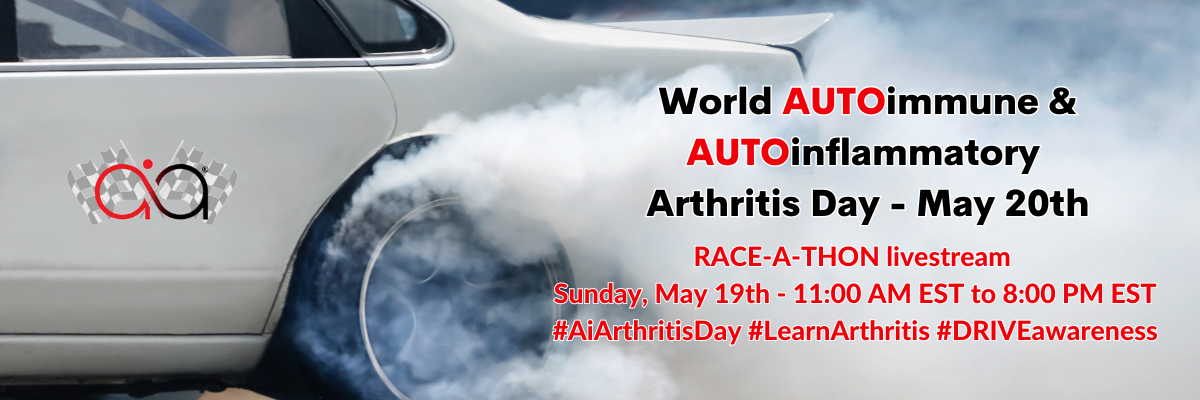By Eileen Davidson
The impact of AiArthritis on a person's daily life extends beyond physical discomfort. It often leads to social isolation as individuals struggle to navigate their relationships while dealing with the symptoms of the disease.

When asked about how AiArthritis Disease impacts their social life and how often, our community on Facebook and Instagram responded with a variety of answers. Many shared that their social life is severely affected by the disease, with some experiencing the impact daily or even hourly. Others mentioned that they often have to cancel plans or modify their activities due to the symptoms. Some expressed frustration and feelings of isolation, while others highlighted the understanding and support they receive from their friends. It was evident that AiArthritis Disease has a significant impact on the social lives of those affected.
It is important to recognize and address the challenges faced by individuals living with AiArthritis Disease, and to provide support and understanding in order to foster a more inclusive and empathetic society. By creating a supportive environment, we can help those affected by the disease to maintain their social connections and enhance their overall well-being.
This is what our community has to say about how their AiArthritis impacts their social life.
How often?
- Laura Nielsen-Durant: Pretty much every day.
- gracefully_jen: More often than I would like.
- dedradavis: Almost every day, if not hourly.
- thebumblebeehive: Every single minute of every day, especially right now.
- gatorgirrrl: At least once a month, but it used to be more frequent before I had better control over my RA.
- latina.nurse: EVERY. SINGLE. DAY.
- bionicquilter: At least once a week, and people perceive me as unreliable.
- jillbellavance: Sadly, way too much. Thankfully, my friends understand and are supportive.
- Delisa LivelifeLove Davis: Every day, all day.
- Wendy DeBoard: Much more than I would like.
- Robyn O'Daniel Bennatt: All the time.
- Irene Oh: My social life is non-existent.
- Delisa LivelifeLove Davis: All day, every day.
- marla_louise: Every single day.
- achronicyogi: It's a daily struggle.
- noteveralone: It's a daily occurrence.
- mtnkat79: Always! Obviously.
- instaextragrammy: Social life? What's that?
- Deb Majcher Constien: All the time.
- Jody Quinn: Almost every day. I have had to cancel plans, trips, and modify my daily work hours.
- Kerry Wong: I'm not even sure what a social life is anymore.

Why?
The impact of AiArthritis on a person's daily life extends beyond physical discomfort. It often leads to social isolation as individuals struggle to navigate their relationships while dealing with the symptoms of the disease. AiArthritis can also present challenges that may hinder social connections, such as fatigue, mobility issues, and cognitive difficulties that affect communication.
- Maris Buxton: I have essentially zero social life due to pain and fatigue, which isolates me.
- Maria Marino: My life is impacted every day. Even hanging out with friends after work requires a tremendous amount of effort.
- Kim Nihill: My social life ceased years ago due to Still's disease. My friends don't understand when I wake up unable to move and need to cancel plans. It's in times like these that I truly see who my true friends and family are.
- Jenni Leaming McNeish: Every day, for years. I can barely get through a work week, let alone engage in social activities.
- Sue Garrison: At least once every two weeks, I have to cancel plans due to fatigue. It takes genuine and understanding friends to grasp the unpredictable nature of this fatigue rollercoaster.
- Bobbie Bleskin Kopczewski Kop: I would be more active, sleep less, and avoid last-minute cancellations if it weren't for my condition.
- Lorene Wendricks: It's a constant experience, as pain levels fluctuate throughout the day.

What they do about it
Like any chronic illness, AiArthritis comes with both pros and cons in terms of social interactions. On the positive side, it can inspire empathy, compassion, and a deeper understanding of the limitations faced by individuals with chronic illnesses. It can also foster a sense of camaraderie and support within communities of individuals living with similar conditions.
- Jennifer Weaver: I am fortunate to have a few close friends who understand my health situation and are understanding when I need to cancel or take a break.
- Judith Flanagan AiArthritis: Every single day, and my social life has practically vanished. My social interactions primarily occur on social media and with a few special friends.
- Andreea Cristina Brezuica: I've turned my house into a meeting place. I'm quite active socially, and everyone comes over.
- Tamara Linn Hiatt: After nearly 20 years, it still has a significant impact. However, having mobility equipment, pain meds, and a supportive husband who shares my interests helps. We are both Steampunks with an affinity for history, sci-fi, and folk music. We even started a choral group together.
- Kerry Kerry: It affects me all the time. I have to carefully plan my energy levels for even the smallest social gatherings.
- Helen Bromberg: Although socializing is not my priority, if it were, it would be utterly difficult, especially as I work full-time. I manage to socialize once or twice a month at best, but it requires careful planning and recovery time.
- Amanda Cummings: I face it daily, and if I could, I would participate in many more activities.
- Julio Arroyo: I don't have a social life anymore. The few hours of enjoyment are not worth the subsequent agony and the constant reminder of what I used to be able to do.
- Cynthia Cole Hart: My condition sometimes takes control, but I try to reschedule when necessary. Since moving away from stressful surroundings, I have become more active.

Some ways to be social with AiArthritis
Living with AiArthritis disease can be challenging, but it doesn't have to hinder your social life. There are various strategies and techniques to enhance social interactions and maintain meaningful connections while managing the symptoms of AiArthritis.
In terms of ways to improve social engagement, volunteering with AiArthritis can boost your social life by connecting with others who have the same or similar AiArthritis disease.
That’s not all though, there are options of joining arthritis-friendly exercise groups, and taking art classes. These activities can provide a sense of community and connection, while also accommodating the needs and limitations associated with the disease.
As awareness of the disease grows, so does the understanding and acceptance within society. Technological advancements are being made to develop assistive devices and adaptive AI technologies that can ease the burden of AiArthritis symptoms and facilitate better social interactions like zoom or other virtual platforms that patients can meet face to face. Support groups and online communities dedicated to AiArthritis are emerging, providing platforms for individuals to connect, share experiences, and find solace in a supportive community.
Living with AiArthritis may present social challenges, but it's vital to remember that maintaining a fulfilling social life is possible. By adopting coping strategies, seeking support, and embracing technological advancements, individuals with AiArthritis can continue to thrive socially, forge meaningful connections, and lead fulfilling lives.






